In the faint light one morning in the early 1990s, my feet ran the pavement toward downtown Indianapolis as I bantered with other runners in that lilting conversation that happens in between strides.
“What do you think of IBLP so far?” I asked one of these newfound running mates.
“Well, honestly, I’m concerned,” said one man. “I’m not sure I want to be part of this organization.”
“What? Why?” I said, after an exhale.
“Well, I hear lots of talk about rules. Lots of talk about behavior. Lots of talk about authority,” he said, pausing for a breath. “But I don’t hear much talk about Jesus.”
Your tax-deductible gift helps our journalists report the truth and hold Christian leaders and organizations accountable. Give a gift of $30 or more to The Roys Report this month, and you will receive a copy of “Hurt and Healed by the Church” by Ryan George. To donate, click here.
The statement landed. And it stayed. It hung in the air. With each step, I knew his statement was accurate. IBLP (Institute in Basic Life Principles) wasn’t about a healthy, normal life. It was legalistic and confining. I didn’t know much about this guy except that he was attending a men’s conference at the IBLP’s facility in Indianapolis, a place where I lived for a couple of years as a teenager. I’d met these guys at one of the meals the day before, and we all agreed to go for a morning run for exercise. I can’t recall if they were from Kentucky, Ohio, Texas or some other place.
“You live at this place. Do you hear much talk about Jesus?” he asked me, as we ran up the stairs at the Soldiers and Sailors Monument in downtown Indianapolis.
“No. I don’t,” I said. “I think you’re right.”
Haunting memories
That scene and those words came back to me as I watched the hit docuseries “Shiny Happy People” on Amazon Prime in recent days and edited a piece by Princess Jones at ReligionUnplugged.com. Initially, I tried to avoid watching the show because I knew it would hit too close to memories I’ve long tried to forgive, forget and erase.
David French wrote an excellent essay in The New York Times about how he almost got sucked into IBLP, the cult-like organization profiled in “Shiny Happy People.” French addressed the question of how otherwise good, solid people became attracted to movements like the IBLP, led by self-taught evangelist Bill Gothard?
Unlike French, I did get sucked into IBLP — though not by my own choice. My parents joined the organization when I was a preteen.
As I watched the series, I realized I needed to address a different set of questions: How did I — a child raised into that organization — break free? How can anyone break free of misguided, fundamentalist religious movements or cult-like organizations and, yet, still retain any kind of religious belief?
I’ll address those questions more in a moment. First, perhaps I need to explain how my family got into IBLP in the first place and why someone like me might want to get out of it.
Before the Duggars
As I watched the series with my wife (who was not home-schooled nor raised protestant), I was baffled that IBLP continued drawing in people in the past 20 years, fueled by the Duggar family’s reality TV stardom. My own experience with IBLP predated all of that. My family got into the home-school arm of IBLP, which was known as the Advanced Training Institute of America back in the 1990s when ATIA was in its early days.
At the time, my family was in an odd place. My dad was a pastor of a nondenominational church in rural South Dakota. Our family of nine was living in a double-wide trailer parsonage on less than $20,000 a year. My parents were home-schooling their kids. We worked gardens to raise vegetables. We baked our own bread. Ranchers in our church kept our freezer stocked with beef and our gas tank full of fuel. Most of our clothes we received via hand-me-downs and thrift stores.
My older sister and I were hitting our preteen years and getting upset we couldn’t attend public school where we could have friends, sports and more academic offerings.
Local rural high schools may not have been feeders to the Ivy Leagues, but they offered something more than working our sprawling garden and acting as second parents to our five younger siblings. We loved our family and our siblings. But it didn’t seem normal to be acting as a nanny and a caretaker at age 12 and 13. It didn’t seem normal to get an education largely by reading books on our own. As I think back now, I realize I often lacked hope as an early teenager.
What depressed me the most was the fundamentalist idea that the world was going to end catastrophically sometime soon and that Christ was supposed to come back and take believers to heaven. Christians with that view often default to having children and focusing on ministry and mission work since the end times prophesied in the Book of Revelation always seems near. Children like me raised in such a grim outlook on the physical world are often relegated to helping raise younger kids until you are old enough to get married, have kids and replicate the waiting game for a second coming of Christ. Everything else in life is pointless. That entire theology and existence struck me as bleak.
Like thousands of other families, we loaded our family van and drove each year to a big ATIA national convention in Knoxville, Tennessee, staying in dormitories, wearing mandatory navy blue and white clothing and attending what I now view as indoctrination seminars that discussed topics such as modest dress, respecting authority and why rock music was bad.
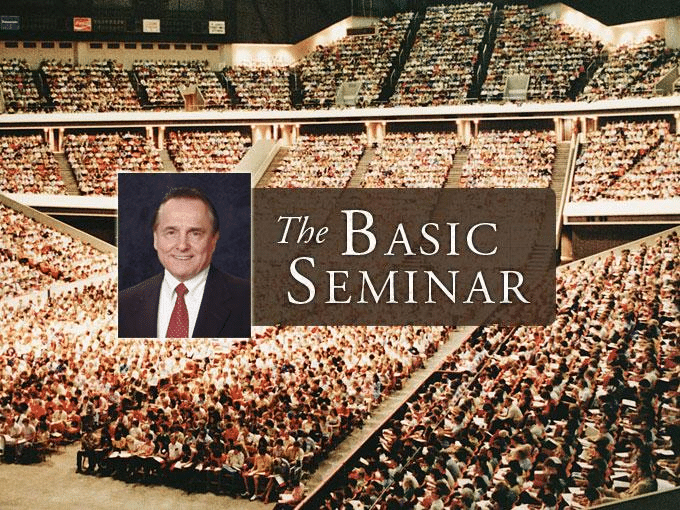
The leader and founder of IBLP, Bill Gothard, and his cronies would choreograph testimonials by older teens to direct younger preteens to commit themselves to things like not listening to rock music, pursuing “courtship’“ instead of dating and wearing modest clothes when at ATIA and IBLP events and facilities (and, preferably, all other times).
And if you made those kinds of commitments and convinced others to do so, you could be invited to go on mission trips and work in facilities owned by IBLP in cities like Indianapolis; Dallas; Chicago; Wisconsin; Taipei, Taiwan; and Moscow, Russia. Though skeptical at first, my sister and I eventually acquiesced to the IBLP belief system and began being invited to work or learn for stints in some of those IBLP locations. For us, it was exciting to get out of South Dakota and interact with young people from other parts of the country.
At the national convention each year, we were part of a massive choir, thousands of young people wearing navy blue and white, singing hymns in the same arena where the University of Tennessee Volunteers played basketball games. These sweeping images from the “Shiny Happy People” film seemed to come from the 1990s footage rather than more recent years. I recognized a lot of people in the images and videos in the documentary. And they triggered unexpected emotions.
“I was there!” I told my wife, my voice tense. “I experienced all of this s—!”
I felt angry that IBLP had persisted all these years. I’d rejected and left this cult-like organization in the mid-1990s at age 18, found my way to college, read lots of books, started a career in journalism and never looked back. In my early 20s, I also found catharsis and healing through friendships, indie rock music and helpful normal mentors and churches. More on that later.
I tried to never look back. I thought the IBLP organization had mostly died and disappeared. I frankly wasn’t too interested in the status of Gothard or the organization even though I stayed in touch with a few friends from those days (all of whom also left IBLP). My older sister was involved in legal battles against Gothard. In fact, she’s one of the story subjects in a documentary coming out in 2024 about how people reclaim their power after sexual and spiritual abuse. Here’s a trailer for the film. Clearly, my sister and other former IBLP survivors had done a better job keeping tabs on the organization and speaking out about its problematic theology and practices. I had largely tuned out.
After self-deprogramming from IBLP, attending college and jumping into a career in journalism that took me all over the world, I conveniently lost track of the cult-like organization from my past and stopped thinking about it almost entirely. I’d defeated them by moving beyond them and ignoring them. In my 20-something and 30-something view, Gothard and his organization that brainwashed me in my teens was now, in my view, small potatoes, rinky-dink, ill-informed, sheltered, paranoid, deluded, culturally irrelevant.
Apparently, the Duggars’ story and the Amazon series show that some of those descriptors may be true. But it also shows the movement and what it means was not irrelevant. My older sister, Rachel, explained to me recently that the influence of Gothard and IBLP extended to thousands of pastors, churches and home-school networks and had a large ripple effect upon many parts of the protestant evangelical church in America. How it impacted Christendom and politics in America is for social scientists to study further.
I couldn’t ignore IBLP any longer. I had to at least explain it more to my wife and some friends. If you haven’t seen the Amazon series yet, the basic version goes like this:
Who was Gothard?
Gothard, a Wheaton College alumnus, says he started ministering to inner city youth in Chicago in the tumultuous 1960s and 1970s and observed “basic youth conflicts” that caused youth to be self destructive. He codified his ideas into outlines and books and set out on a series of road shows to arenas around America where he would set up shop for a week and entertain thousands of people by writing in all caps lettering on his overhead projector slides, telling stories and sharing his self-help principles for people and families.
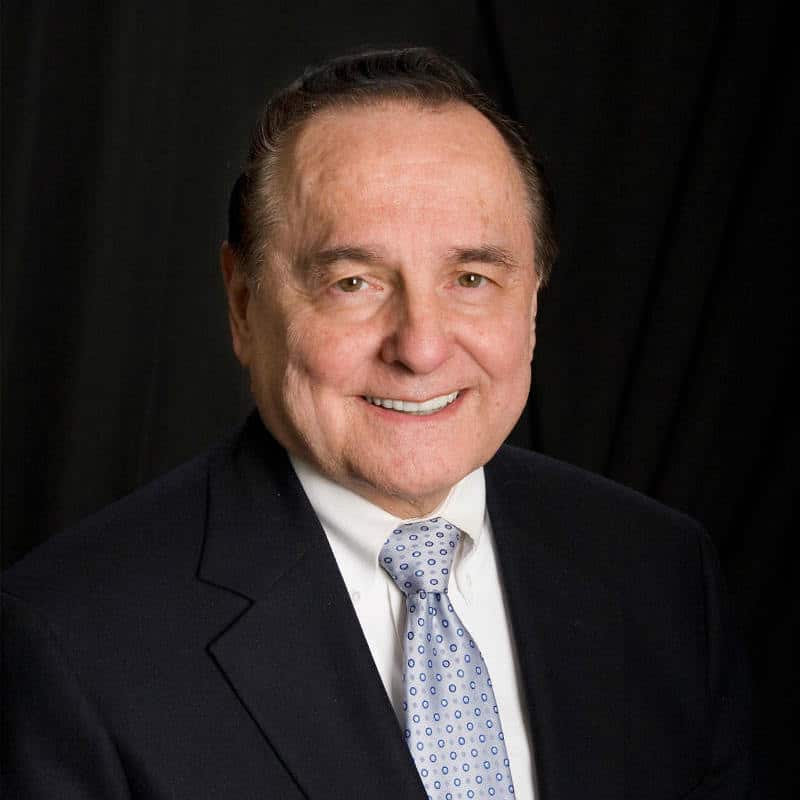
He’d draw with chalk talks sometimes as well, wowing people with a Bob Ross style, illuminating the final image under blacklight to reveal something that synced to a narrative story and a spiritual lesson from the Bible. From a presentation standpoint, it was all super quirky in an anachronistic, pre-Powerpoint kind of way. And it worked for a lot of people.
Apparently, a lot of people in that era felt the hippie movement was empty and Gothard’s ideas and boxy ALL CAPS LETTERING provided a structure and some hope for their lives and families. His seminars drew crowds bigger than most rock bands, sold piles of books and yielded lots of donors. With that momentum, Gothard started a host of projects including the ATIA home-school network. Gothard started soliciting invitations from mayors of cities to bring his home-school students to their city to work with wayward youth the way Gothard did in Chicago.
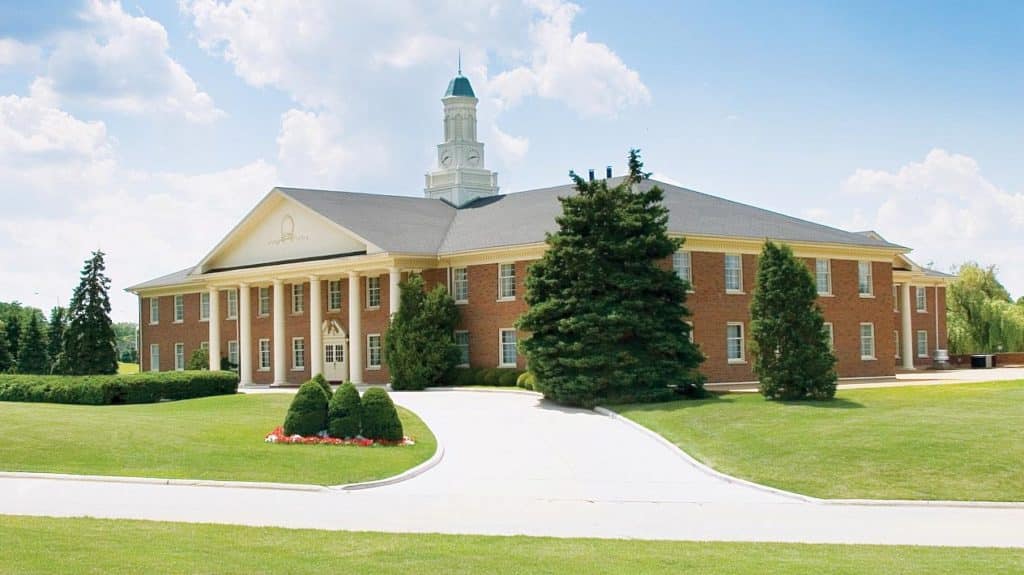
Stephen Goldsmith, an innovative mayor of Indianapolis, helped Gothard find and obtain a bankrupt multi-story hotel in a forlorn neighborhood on the near north side of Indianapolis in the early 1990s as part of a public-private partnership. Gothard’s organization bought it for a nominal fee and spruced it up using a team of home-schooled boys and men as a “construction crew.” They installed IBLP’s signature oak-paneled crown molding, plush deep red carpet and speakers in every room so IBLP could broadcast hymns, scripture reading and announcements into our rooms.
I’d spent a summer mowing lawns on the “lawn crew” at the IBLP headquarters in Chicago in the early 1990s. That’s perhaps when the photo with my sister, Gothard and I were taken. Not only were we in a snapshot with the man more than once. But we were featured in the organizations newsletter multiple times. Some of my friends suggested that we were mini-celebrities in that world. Gothard used certain families and often attractive young females to lend legitimacy to his organization (or perhaps because he just liked publishing photos and spending time with attractive young females?). Certainly, the Duggar family’s reality show took that “celebrity family” idea to new heights.
Like most people, Gothard did not come across as evil. And I don’t believe he is entirely evil. I think he’s deluded. I think he’s an authoritarian. And I think he’s misguided. He operated with big, creative vision, while also sometimes micro-managing details including lawns, kitchens and menus. He drove an old car and lived in a simple house. But he led a jet-setting life, meeting with leaders and acting like a Fortune 500 CEO. He built his empire partly on the tuition fees from thousands of homeschool families and cheap labor from thousands of bright, hard-working and naive children and teen-agers like me.
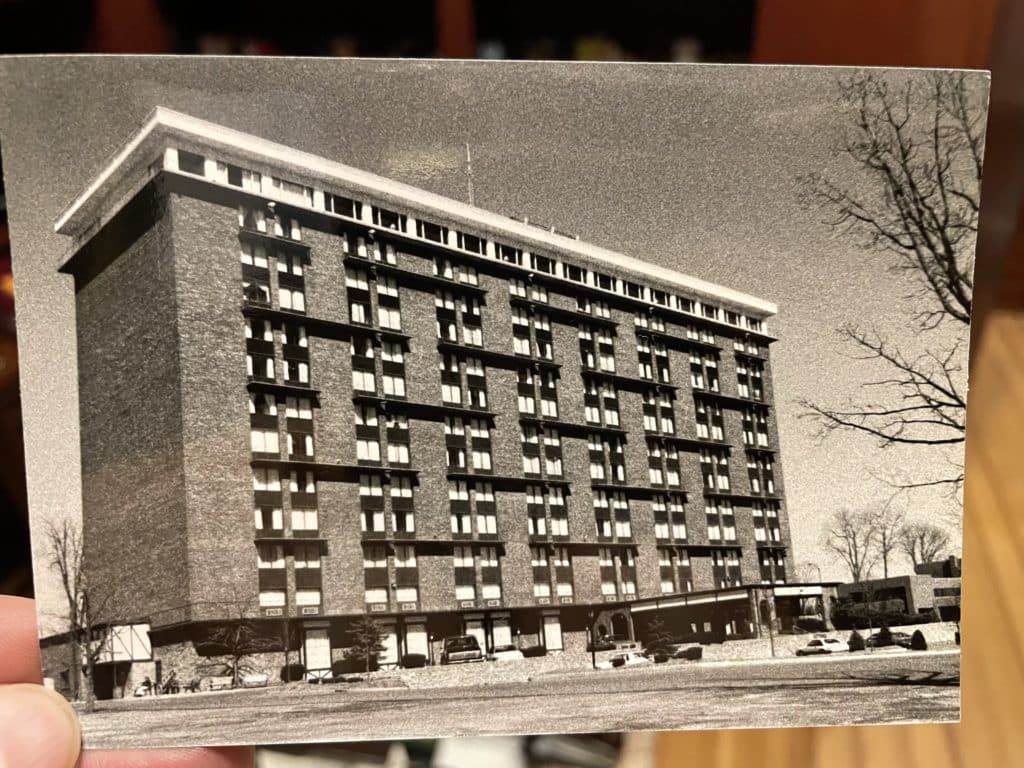
At the Indianapolis Training Center in the old hotel he bought, IBLP hosted conferences for young men for a month and separate conferences for young women. While attending the conference for young men when I was 15 years old, I heard an editor named Russell Pulliam from The Indianapolis News speak about his career in newspapers. At the time, I was writing an occasional column for The Rapid City Journal in South Dakota.
I appreciated the insights Pulliam shared so I waited in line afterward to shake his hand and to thank him. Before I turned to leave, he asked if I was doing anything with writing. I told him that, yes, I was writing some pieces for my local newspaper in South Dakota. Pulliam was intrigued, gave me his card and invited me to visit him at the newspaper. Maybe he didn’t think I would follow up? But I did. I found a ride in that pre-Uber era and brought a couple of buddies with me to tour the newspaper and ask more questions. I still remember the shelves of books, the smell of ink from the printing press and the excitement of a big city newsroom. I wanted to be part of something like that.
Pulliam asked me to send him my writing samples. I did so when I got home to South Dakota. We sent a few letters and published writings back and forth that winter of 1993 and, in the spring of 1994, Pulliam called my parents to ask if they would let me work for the summer as an editorial page intern at The News. I could stay at the IBLP facility in Indianapolis. I don’t know if Pulliam realized I was only 16 at the time. My parents said yes. I took a GED (passed it with no errors as I recall) and moved to Indy. It turned out I had to get a special work permit because, even with a GED, it was not normally legal for a 16-year-old to work full-time.
I will be forever grateful to Pulliam and other mentors who knowingly or unknowingly helped me think critically as a person and as a Christian. Some of them were also fathers, sons, mothers and daughters who were also part of the IBLP network. Yet, we found space to talk and think critically. Collectively, they were part of my own gradual process of cult de-programming, de-brainwashing, removing blindfolds… and reconstructing what I consider a more wholesome and healthy approach to life and faith.
How I escaped IBLP
There are some good resources available for people who walk away from cults or cult-like organizations. For example, Carol Giambalvo wrote this essay about “Post-Cult Problems: An Exit Counselor’s Guide.” Meanwhile, here are some steps that helped me rapidly move past IBLP and to develop what I consider a more healthy life and faith:
-
Seek Knowledge. While I worked at The Indianapolis Star off and on between 1994 and 1997, before going to college, I made a point to read and learn as widely as I could. That meant reading fiction, non-fiction, poetry and anything I could find. I took reading recommendations from a mix of wiser, older people. I kept notes and lists of books. I checked some out from interlibrary loan in South Dakota. When I lived in Indianapolis, I looked forward to the Indianapolis Public Library’s book sale, where you could pay $2 for a brown bag and fill it with used books. I still have many of the books I bought from those sales. I also created a lending library at The Indianapolis Training Center, where other guys staying at that IBLP facility could check out books from me and return them. I recall George Orwell’s classic books — “1984” and “Animal Farm” — were especially popular among my friends. “This place [IBLP] reminds me of Animal Farm!” I remember one saying after reading it. We read other dystopian novels such as Fahrenheit 451 by Ray Bradbury. Yes. This literature was technically contraband in the IBLP universe. It ran contrary to the limited selection of fundamentalist literature in IBLP’s own library. I had special dispensation because I worked at the newspaper and IBLP liked that example of a home-schooled kid achieving something. I expanded that freedom as much as I could.
-
Seek Wisdom. Beyond seeking just facts and knowledge, I believe I also was on the lookout for wisdom beyond the fundamentalist network. That meant being open to listen, reason and think critically. Certain mentors said things at key times that woke me up. The Gothard movement encouraged “apprenticeship” rather than going to college. So at age 14 and 15, I started asking lawyers if I could shadow them. One in Rapid City, S.D., named Rod Schlauger was kind to take me to court and let me learn some legal research methods. I recall he also gently prodded me to go to college, telling me I had potential and should do so.
Another acquaintance in Minnesota named Darrell McKigney was involved in politics and think tanks. I remember one day he told me, “Don’t LET anyone hold you back! You need to register for the SAT and the ACT and convince your parents to let you go to college! If you can’t do that, you don’t deserve to go to college!” The words motivated me to sign up for those college entrance exams. Though I tested in the high 90th percentiles in math throughout elementary school, I hadn’t taken math since 8th grade. So on the SAT, I scored very high on verbal and reasoning and below average on math.
I didn’t get into my top choice, Princeton, but I was accepted into several private colleges and state schools including the University of South Dakota, where I also received a four-year, full-tuition Allen H. Neuharth Scholarship in journalism, which was named after my grandfather’s second cousin, another South Dakotan and USD alumnus who became CEO of Gannett and founder of USA Today. I was able to meet Neuharth several times while at USD and he was always encouraging to me. My freshman year of college, I was assigned to drive Neuharth around campus. When I picked him up he said, “I see you’ve got several stories in The Volante this week. And you’re a freshman!?” I said, “Yeah. I’m related to you, too. And I figured I needed to work hard out of the gate.” He responded with two words: “Damn right!”
I wrote a letter to NBC News anchor Tom Brokaw, a USD alum, and received a thoughtful and helpful letter back with advice. I connected with Brokaw’s mentor at USD, William O. “Doc” Farber, who was in his 80s and had mentored legions of young people from South Dakota. Farber made me his faculty assistant and gave me lots of great advice over the years using aphorisms such as, “Always be willing to sacrifice who you are today for what you can become.” I remember wondering if that meant sacrificing one’s principles. Farber agreed it didn’t mean that. My father warned me to “watch out for the mind-f@#$ers” in college, especially professors who were anti-religious. Over time, I read enough and thought enough about religion, theology, economics and philosophy to enjoy discussions with classmates and professors with views different from mine. I enjoyed reading Aristotle, Ovid and Nietzsche. I felt this approach made me stronger in my core beliefs on topics such as economic liberty, press liberty and religious liberty.
And I’m grateful to people who encouraged me on this front including professors, editors and elders in churches I attended. I remember one man named David Neel at 2nd Reformed Presbyterian Church in Indianapolis took me to breakfast before I moved from Indianapolis and back to South Dakota for college. He was in a science-related role at drug maker Eli Lilly & Co. and had younger children at the time. David told me not to worry about the “fundies,” fundamentalist Christians who want to limit what you think. He quoted the “Greatest Commandment” found in the Gospels such as Luke 10:27 where Jesus tells his disciples to “Love your Lord your God with all your heart and with all your soul and with all your strength and with all your mind, and your neighbor as yourself.” David noted that fundamentalists often forget the word “Mind” in that passage. He and others told me that when someone becomes a Christian, they shouldn’t hang their brains on a hook. That’s not what early Christian saints did. It’s not what we are to do today.
-
Find Quality Friendships. Throughout my teen years as I was breaking free from the mind control of Gothard’s IBLP and trying to retain my own faith, I found friendship with other men and women on the same journey. Friends from my church at the time in Indianapolis spent a lot of time together. Many of them were also home-schooled and in the IBLP network but had one foot in a more sane, less fundamentalist culture and lived at home rather than at the IBLP training center in Indianapolis where I lived at the time.
Eventually, I separated myself from the IBLP training center and moved into a house with other guys from my church — Brad, David, Daniel, Michael, Nathan and many others — who were in their late teens and early 20s. We played street hockey, went on camping trips, bike trips, watched film, had dinners, attended church and studied sacred texts. The community didn’t exclude others who didn’t attend our church. I experienced kindness from many families and, over time, understood the notion that Christendom was much larger, broader and historically richer than any one denomination or non-profit organization might suggest. Most of these people went to college and lead healthy lives with families of their own now who are not in IBLP.
-
Reject Patriarchalism. Embrace Human Dignity. One of the most powerful ideas in Christianity and in other religions is the idea that humans are made in the image of God. And that idea helped me realize some areas where fundamentalism went astray.
As the “Shiny, Happy People” series portrayed, IBLP and fundamentalism does a number on young people by warping their sense of family, gender roles and authority. IBLP preached patriarchalism. The father was the head of the wife and of the family and everyone is subservient to him. This never set well with me, particularly as I observed many unhappy families and unhappy couples trying to follow that model. It was clear that the mothers often ran the show anyway but everyone gave fake fealty to patriarchalism. Meanwhile, it struck me as perverse to make a man shoulder all the burdens of providing for his family and to suggest all women need to be homemakers. The notion seemed miserable all around. Some women like to work and should work. Some dads like to cook and are good at it and should do that. During college, I decided I needed to marry a woman who had an education and was not in the IBLP, fundamentalist mindset. I wasn’t threatened by a woman with more education or earning potential than me. Marriage was to be a partnership, not a dictatorship. I wanted a marriage based on teamwork, respect and dignity. And I wanted that spirit to extend to my children — a spirit of respect and dignity rather than fear and control.
-
Enjoy Music. Although rock music was banned in IBLP and in my house (my dad was forced to burn all his vinyl rock records), we did take piano lessons and listen to a lot of classical music. In college, I tried to listen to a wider range of classic rock and 90s music. In my 20s, in the early 2000s of Brooklyn and in Pittsburgh, indie rock and indie folk music became my therapy. Stations like KEXP in Seattle, bands like Wilco, singer songwriters like Ryan Adams and Sufjan Stevens became part of my personal soundtrack. Their soulful songs of disappointments, change and breakups created mental pathways for my own breaking up from a cult and fundamentalist Christianity. And at the rock shows and dive bars with young Gen X and Gen Y creatives and intellectuals, I often found that I wasn’t alone in questioning convention, seeking knowledge and deconstructing / reconstructing belief.
-
Find Communities of Faith. In college, I visited several different faith communities and never quite found the right one. But I was part of groups that approached the Bible and faith with sincerity and thought. As I got into journalism and moved around the country from California to D.C. to New York and a few other locations, I found different faith communities met my needs in different places: A baptist church in California; An Anglican church in Pittsburgh; a lutheran church in Berlin and Redeemer Presbyterian in New York City. Pastor Tim Keller at Redeemer was a beacon of fresh air in the early 2000s as I was trying to reconstruct my own faith and figure out life as a 20-something in New York City. I met other ambitious young people through ski retreats and small groups from Redeemer. I realized that church can be a place to seek and find continual wisdom, knowledge and transcendence. I no longer sought to be the most pious Christian or perfect person as I had while in IBLP. Rather, as Isaiah 64:6 says, “All our deeds of righteousness are like filthy rags.” Rather, as I understood my own lack of righteousness, I was able to appreciate the role my faith, a church community and friendships can play as anchors and change agents in one’s life over time.
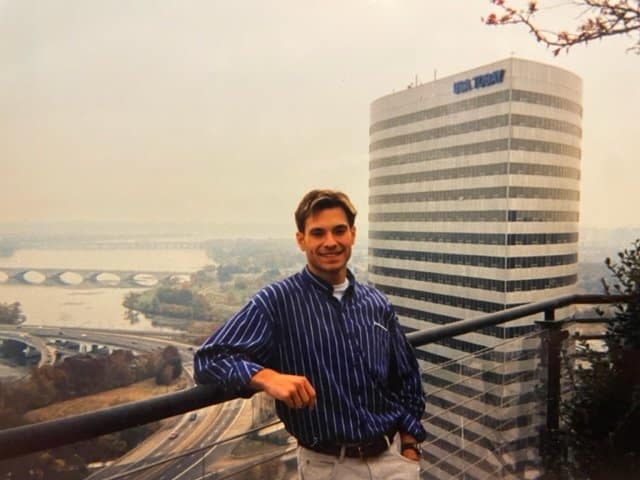
Survivor’s — or escapist — guilt?
Occasionally, I would come across other former ATIA peers and I felt heartbroken by some of their stories of divorce, estrangement from families, judgement by families, a lack of education that created limits for them. The limits were especially oppressive and limiting for women.
As I watched the “Shiny, Happy People” series and read some essays and reviews about the show, I found myself triggered and angry at odd times and locations. At the same time, I was heartened by the voices in the film including some of the Duggar children who made their own escape and spoke up about the flaws they saw in Gothard’s IBLP or the Duggar family model.
At the end of this school year, I found myself strangely tearing up while I watched my kids perform at an elementary talent show or walk through a graduation ceremony. I realized the emotions were driven both by sadness that I didn’t experience these kinds of events as a child but also great joy that I was able to experience them now with my children. I was also filled with joy that I am part of a community of families who have many different backgrounds and beliefs yet share a mutual care for our community and its children.
In church, during sermons and worship songs, various words and phrases trigger emotional responses in me. I often cannot sing or say certain words or phrases about God that remind me of IBLP. And some words and phrase that relate to deconstruction and reconstruction of my faith in healthy ways cause me almost too much gratitude, joy and emotion that I have to listen rather than speak.
One professor colleague of mine, Dr. Anthony Bradley, listened to me talk about this once while we walked down stairs at an ancient Buddhist site in Indonesia. “I think you have PTSD,” Bradley said. He was right. Those of us who have journeyed through and out of truly cult-like religious communities often have an ongoing “spiritual PTSD.”
One recent Saturday morning, I called my older sister, Rachel, to catch up and to talk about the “Shiny, Happy People” series and its impact on us. In the conversation, I told Rachel that I realize I have some kind of “survivor’s guilt.”
The American Psychological Association’s Dictionary of Psychology defines “Survivor’s Guilt” this way:
Remorse or guilt for having survived a catastrophic event when others did not or for not suffering the ills that others had to endure.”
In one sense, I felt some guilt for disagreeing with and abandoning my own parents and siblings when I was in my late teens and early 20s. In truth, my exodus from IBLP was the beginning of a slow exodus for my entire family and a gradual healing that is still in process.
Even though it was not my fault, I felt guilt and shame that my family was ever part of something like IBLP.
I also felt guilt that circumstances had lined up better for me than some of my peers in IBLP. Perhaps I was lucky to find mentors and opportunities? Perhaps I was lucky to receive a scholarship to college? Perhaps I was lucky to find a vocation I enjoyed after college? Perhaps I was lucky to be a male, rather than a female who had more agency to leave behind a fundamentalist upbringing? And did my luck mean others were unfairly left behind, suffering in a spiritually destructive existence? Should I have said or done something more? Something different? Should I have done something to expose IBLP for what it was the way my sister and some of the Duggar children are now doing?
”No” my sister, Rachel, said. ”You did things your own way. We fought you and your ideas. We, your own family, treated you poorly for doing your own thing. We made you feel like you were a black sheep. I made you feel like that. I am sorry. I am terribly sorry.”
At this point I was taking my dog for a walk in the park, wearing sunglasses which hid the tears. After regaining my own composure, I was able to tell Rachel, again, that I am proud of her for her courage to process her own experiences and speak up about Gothard and IBLP and what she and other women experienced as abuse.
Sometimes it’s important to have a good talk with your siblings, and a good cry. Our experience was not so different than Jewish children raised in an ultra-orthodox community, exiles from Amish or Mormon communities, or children raised in a fundamentalist Muslim context. Parents in these communities often love their children and think they are doing the right thing for them. And, true, perhaps the experience is not ALL bad. For example, children from faith communities learn to memorize and analyze sacred texts. Those are skills from which modern youth hooked on screens could perhaps benefit.
Our parents were not monsters. They sometimes enrolled us in soccer, wrestling, choir, tennis, chess and many other enrichment activities. They provided as best they could. In their own ways, they have tried to understand the way IBLP affected our family and its members.
“I’m grateful we get to do things differently with own own kids,” I told my sister, Rachel.
“I know,” she said.
It doesn’t mean we’ll be perfect parents or raise perfect children or have any kind of perfect, idealized family. If anything, I want to accept my imperfections.
And I hope to keep an ear tuned for wisdom, to hear insights like those from the random running mates on an early morning in downtown Indianapolis. I want to downplay the rules and letter of the law when it comes to faith and to play up the knowledge, spirit and transcendent elements of religion when it comes to family faith formation.
I want to run away from legalism. I want to run toward the person, words and message of Jesus. I want to keep running toward healthy, life-giving, restorative, healing, forgiving, loving faith.
This is my letter to help readers who might want to judge or belittle or dehumanize people from communities of faith like the Amish, the Latter Day Saints, the Hassidic jews, the extremely conservative muslims or the shiny, happy people of IBLP. People trapped in fundamentalist thinking — especially children — are still humans. Please do not dehumanize them. And let’s not forget that even secularists and folks on the progressive left can become as dogmatic or close-minded as religious fundamentalists from the right. Enlightenment and empathy may run on parallel tracks.
This is also my letter to people who have been through something similar to me and escaped or are in the process of wrestling, escaping, surviving, deconstructing or reconstructing. This is my heartfelt letter hoping my words and story might help someone else. This is my letter of thanks to my sister and others who have been speaking up and discussing the problems of IBLP for years over social media and now documentaries like “Shiny, Happy People.”
This is my penance for being silent for so long on this topic because of my own shame for ever being unwillingly part of IBLP. This is my letter to the Duggar children and the Duggar parents. This is my letter to people who lost their faith because of IBLP. This is my letter to people who were hurt or still are stymied because of IBLP. I haven’t left you behind. This is what I would tell you if we were having coffee, driving on a road trip or going for an early morning run.
This opinion article, which was originally published by Religion Unplugged, does not necessarily reflect the views of The Roys Report.
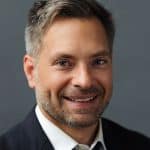 Paul Glader is executive editor of ReligionUnplugged.com and executive director of The Media Project. He has reported from dozens of countries for outlets ranging from The Wall Street Journal, The Washington Post, Der Spiegel Online and others.
Paul Glader is executive editor of ReligionUnplugged.com and executive director of The Media Project. He has reported from dozens of countries for outlets ranging from The Wall Street Journal, The Washington Post, Der Spiegel Online and others.




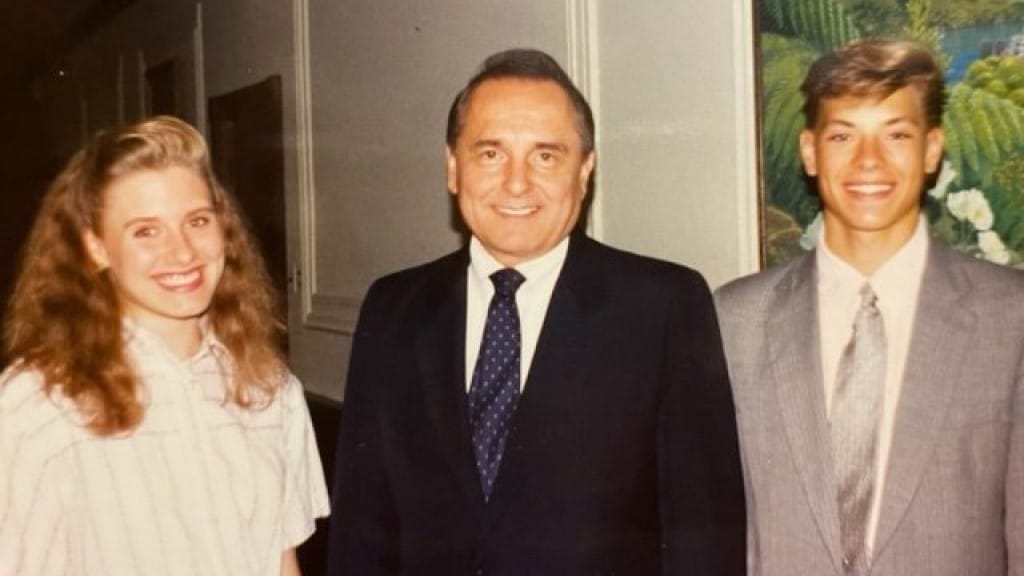
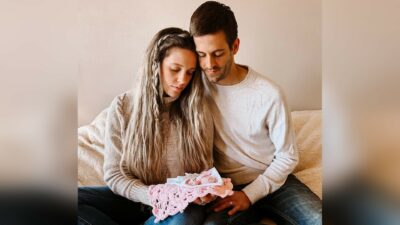
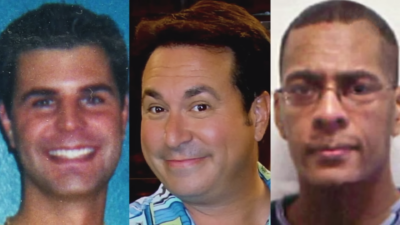
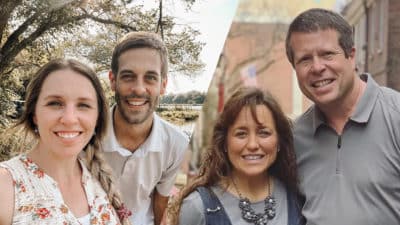

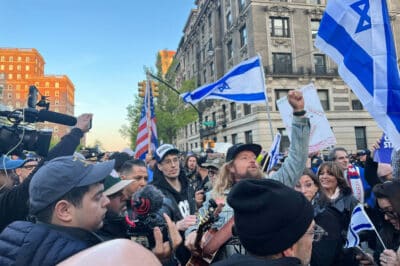
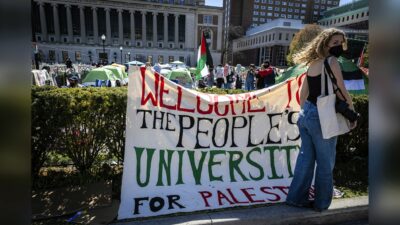

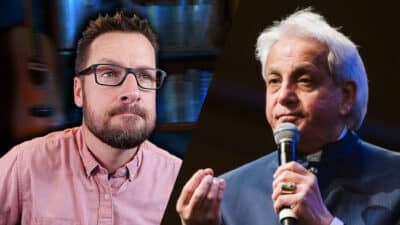
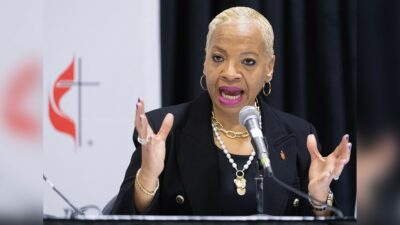






9 Responses
Paul, such an encouraging story of a humble, self-aware, and appropriately ambitious man! We hear too much about abuse and not enough from (relatively) healthy survivors like yourself who have retained faith in Christ apart from cult-like organizations. Thanks also to Julie for posting this article on her website.
Really enjoyed the article. The depths of his contemplation on his journey of faith really spring forth from his writing. The kind of dude that I would probably enjo.y talking to about a wide range of things. Came across as kind, sincere, thoughtful and honest. Thx for the article.
I’ve been where you are and understand completely your story. Thank you. However, I think you should have left the word “luck” out of your story when explaining how you escaped. It wasn’t luck – it was God’s grace.
Amazing story, great advice. So glad you and your sister got out.
Research has led me to the one thing that IBLP and other legalist cults revolve around—-> patriarchy.
Patriarchy and complementarianism are so entrenched in the way the church functions. Those 2- 3 verses on women submit obey be silent has made christianity into a male hierarchy with women’s voices denied or silenced. Gothard came up with 100s of rules micromanaging women’s lives. Abusive men took advantage of it because there were only 2 main rules for men, lead and breed!
It is sad that mutualist Christians, (who believe God made men and women equal and only Jesus the leader in the family) are judged and put down by other Christians who hold to pat/comp teachings.
Ironically the only groups offering help and resources for those abused in IBLP and other pat/comp cults are the mutualists.
The dam is bursting and truth will come flowing out. Keep up the good work!
It’s unfortunate the author presents homeschooling as limiting. Raising our sons in Detroit with no money for private school, homeschooling was our only option. After third grade in public school, my eldest still couldn’t read. They kept assuring me he’d get it eventually. Yes, there were social events they missed out on and neither went to college, but they both learned to work with their hands and operate machinery. They were able to buy homes. They can read.
Wonderful article. During the early/mid 70s much of the evangelical community lined up in masse to attend these seminars. At the time, I thought there was sort of a zombie-like buy in to some crazy ideas. My church made my attendance to Basic Youth a condition of my on-going support as a missionary. Don’t tell anyone, but I didn’t go. Hope the statute of limitations applies. It really heartened me to read how the author explored the world of ideas and listened to music that wasn’t on some sort of weird approved play list. And to go through all he did and emerge with a robust faith intact. Well done!
That’s exactly, what I thought too when I read the homeschooling part, you did the right thing, homeschooling is the best, God Bless you.
Many mega churches like this exist. If only folks would use Jesus as their ‘hero’….instead of a charismatic pastor/salesman……
Paul, thank you for your courage in writing about your experiences. Back in the early ’70s, I had an older brother who INSISTED I had to attend the seminar in Basic Youth Conflicts. I just couldn’t buy into it, given some of our family dynamics. To my complete shock, he finally apologized to me about five years ago. “I was wrong about Gothard.” Now that more stories are coming out about Gothard’s questionable experiences with teen-aged girls, I was not surprised.